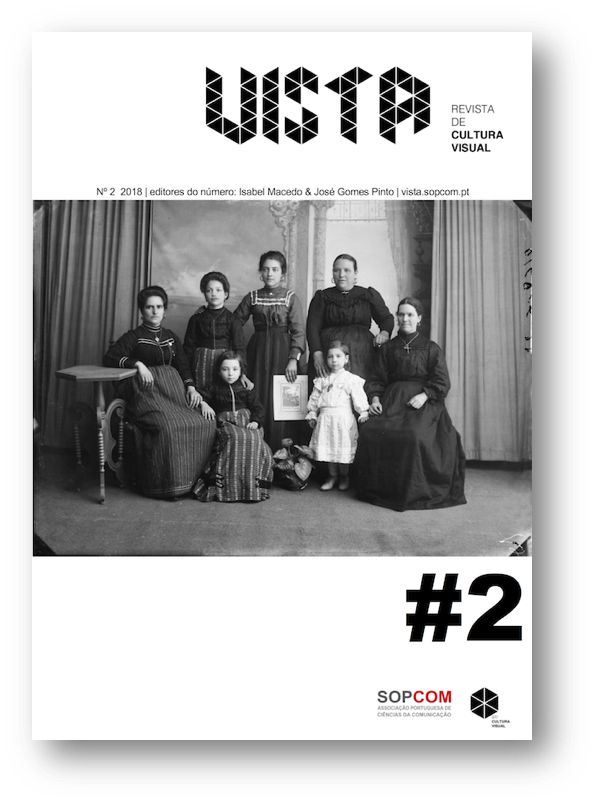A Grande Guerra e os quotidianos no Porto: os arquivos como contributos
DOI:
https://doi.org/10.21814/vista.3001Keywords:
archives, World War I, Porto quotidians, documental heritageAbstract
This article results from an investigation realized under the topic of “Porto Quotidians and Sociabilities in the Context of the Great War” developed between the Escola Superior de Educação do Porto and the Arquivo Distrital do Porto. Seeks, through the analysis of four funds - Emigrant Passport Processes (letters of call); Porto Railroad Company; Admission Processes of the House of the Hospices of Porto (Wheel House); and Notary Registers Book - to contribute to the knowledge of quotidians and sociability in the city of Oporto during the World War I, more concretely in 1917. It aims to outline the importance of archives as a primary source of safeguarding an unequalled documentary heritage, solidified by the personalities and historical events it immortalizes. The analysis of documentation, here understood as a constructive element of a collective and identity memory, revealed a city marked by emigration to the South American continent and loss of an active contingent, by the misery and hunger of many families of disadvantaged classes who saw in the house of the hospices the only salvation for their children and a city where the war had consequences in the commercial and associative sector.
Downloads
References
Amorim, M. N. (1987). Guimarães 1580-1819. Lisboa: Instituto Nacional de Investigação Científica.
Araújo, F. M. (2014). Impressões Jornalísticas sobre o Porto na Grande Guerra. Atas do Encontro A Grande Guerra (1914-1918): Problemáticas e Representações (pp.105- 124). Porto: CITCEM.
Correia, F. V. (1926). Situação Económica e Financeira de Portugal: Território e População. Lisboa: Imprensa Nacional.
Decreto-Lei no16/93 de 23 de janeiro de 1993. (1993). Obtido de Diário da República, Série I, pp. 264-270. Retirado de http://act.fct.pt/wp-content/uploads/2014/05/Decreto- Lei-16-93.pdf
Ferraz, J. M. (1975). O desenvolvimento socio-económico durante a Primeira República. Análise Social, XI, 454-471.
França, P. (1992). O Governo Civil do distrito de Viseu: nota histórica e documentação. Viseu: Governo Civil do Distrito de Viseu.
Klein, H. S. (1993). A integração social e económica dos imigrantes portugueses no Brasil nos finais do século XIX e no século XX. Análise Social, 121, 235-265.
Lage, M. O. (2002). Abordar o património documental: territórios, práticas e desafios. Guimarães: NEPS.
Lei no107/2001, de 28 de setembro (2001). Obtido de Diário da República n.o 209/2001, Série I, pp. 5808-5829. Retirado de http://data.dre.pt/eli/lei/107/2001/09/08/p/dre/pt/html
Lima, M. J. (1992). Os Arquivistas, a Formação, a Profissão. Cadernos de BAD, 2, 21- 27.
Lowenthal, D. (1989). The Past is a Foreign Country. Cambridge: Cambridge University Press.
Nora, P. (1993). Entre memória e história: a problemática dos lugares. Proj. História, 10, 7-28.
Ribeiro, F. (2000). O Património documental: da memória das instituições à memória da nação. Bibliotheca Portucalensis, 13-14, 19-39.
Sá, I. d. (1985). A casa da Roda do Porto e o seu funcionamento - (1710-1780). Separata da Revista da Faculdade de Letras - História, II, 161-199.
Downloads
Published
How to Cite
Issue
Section
License

This work is licensed under a Creative Commons Attribution 4.0 International License.
Authors own the copyright, providing the journal with the right of first publication. The work is licensed under a Creative Commons Attribution 4.0 International License.













